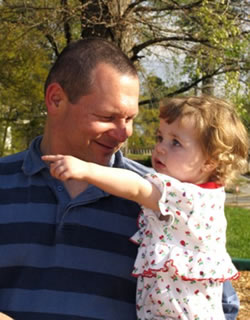Give children and youth a chance to show you what
they can do.
Feeling valued and appreciated is important to all
of us. For children and youth, this means feeling safe and believing they’re liked
and respected. These feelings can go a long way toward empowering young people. Providing opportunities and recognizing accomplishments helps young
people build self-esteem. This in turn, gives them the confidence to share
their ideas, knowledge, and creativity by volunteering and working in paid
jobs. By paying attention to children, you show that you value them. Empowerment is
one of the eight asset categories that make up Search Institute’s 40
Developmental Assets, the qualities, experiences, and relationships that help
young people grow up healthy, caring, and responsible.
Here
are the facts
Research shows the more children and youth are
valued and feel valuable, the more likely they are to grow up healthy and avoid
risky behaviors, such as alcohol and other drug use, violence, and early sexual
activity. Search Institute has identified four assets in the Empowerment
category crucial for helping young children grow up healthy: Community Cherishes and Values Children, Children Seen as Resources, Service to Others, Safety.
Tips
for building these assets
It’s not always easy to know what it takes
for children to feel empowered. Sometimes children and youth doubt themselves or
don’t feel valued despite the good intentions of and recognition from caring
adults. Communicate with young people openly and honestly about relationships,
politics, religion, and other serious issues. Young people need to know that
their questions and concerns are valid and important.
Also
try this
In your home and family:
Empower your child by providing choices. Have regular family meetings to plan,
solve problems, and encourage one another. Rotate who leads the meetings.
In your neighborhood and community: Get involved in the community and advocate for developing
meaningful opportunities for young people, such as volunteer projects and civic
activities.
In your school or youth program: Take a field trip to a nursing home or senior housing complex. Have
students and group members perform a concert, and afterwards talk to residents
and learn about their present situations, as well as their pasts. Ask
participants to send thank you notes to the residents they met. Also encourage
the young people to discuss what they learned from their visit and what they
contributed to the lives of the residents.
Want to know more about Search Institute’s other seven asset
categories or the 40 Developmental Assets and ideas for helping young people
build them? Visit www.search-institute.org/assets.
-------------------------
Developmental Assets® are positive factors within young people,
families, communities, schools, and other settings that research has found to
be important in promoting the healthy development of young people. From Instant Assets: 52 Short and Simple E-Mails
for Sharing the Asset Message. Copyright © 2007 by Search Institute®,
877-240-7251; www.search-institute.org. This message may be reproduced for
educational, noncommercial uses only (with this copyright line). All rights
reserved.






